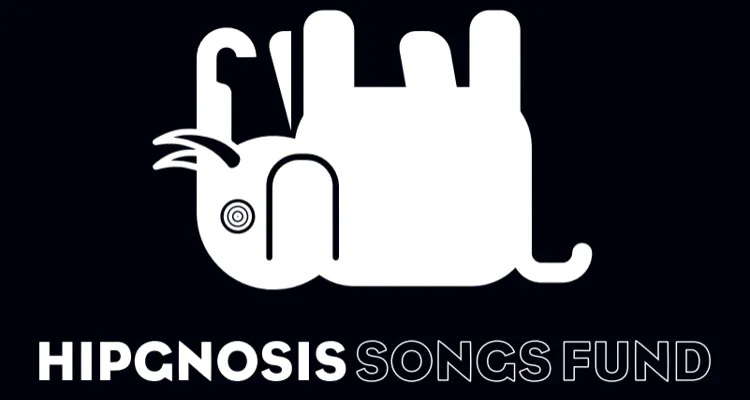Photo Credit: Hipgnosis Songs Fund
Hipgnosis Songs Fund is now repurchasing its own shares as its stock valuation plunges to almost half of what the company said its catalogs were worth.
The situation at Hipgnosis is now shifting from bad to worse. According to details emerging over the weekend, the London-based Hipgnosis Songs Fund has launched a debt-funded share buyback program after its stock valuation plummeted by 30% in the last six weeks. According to details tipped by the Financial Times, the fund is backed by private equity giant Blackstone, which is financing the share buybacks using a fresh tranche of refinanced debt.
Hipgnosis did not disclose how many shares it intends to buy, though the move signals a serious catalog valuation problem. Specifically, the market is now severely discounting Hipgnosis’ appraisal of its own catalogs. Part of the difference comes from rising interest rates, which are creating downward pressure on the valuation of Hipgnosis’ storied holdings.
In its annual report in July, Hipgnosis Songs Fund said its portfolio of songs had an operative net asset value (NAV) of $2.5 billion. However, as the Financial Times pointed out, the company’s market valuation based on its current share price is around $1.8 billion, or nearly “half what Hipgnosis had said its catalogs were worth.” Meanwhile, the company hasn’t bought a new catalog for more than a year, reports of which only add to the company’s recent share price plunge.
Now the company is using new debt from refinancing earlier in the month to buy back some of its shares, which will run until December 8. The company hopes to break the cycle wherein rising interest rates increase the cost of its debts, while falling share prices prevent any efforts to raise more money and buy more song catalogs.
“This is a surprising announcement to us,” said analysts at investment bank Stifel in the Times piece. “Effectively, the fund will be borrowing at just under 6% to buy back stock (…) the market is essentially indicating a lack of credibility over valuations.”
The situation raises more questions about the catalog valuation methodology employed by Hipgnosis.
The situation puts a bigger spotlight on the appraisal process of the ostensibly independent and impartial Massarsky Consulting (which sold to Citrin Cooperman earlier this year). Now, industry analysts and investors are raising questions about a relationship that may be too cozy — with Massarsky accused of over-valuing catalogs while refusing to factor increasing interest rate hikes into his calculations.
Whether we’re witnessing a bubble go pop is a scary thought, though the results of catalog over-valuation could be seriously ugly.
The afternoon following the announcement, Hipgnosis shares were up 7%, according to Financial Times. Until share prices stabilize, Hipgnosis Songs Fund is effectively unable to raise new equity to buy more song catalogs without diluting existing shareholders.
Blackstone bought a majority stake in Hipgnosis Song Management last year, which advises Hipgnosis Songs Fund. Blackstone also operates a separate billion-dollar fund, Hipgnosis Songs Capital, which is privately held and advised by Hipgnosis Song Management.

